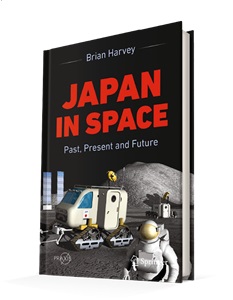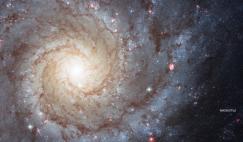Japan is one of Asia’s major space powers, but it fails to get the publicity afforded to China and India. This book aims to put that right with a detailed and intelligent analysis of the nation’s space programme, which dates back more than half a century.
It begins with the origins of the programme, marked by the launch of Japan’s first satellite in 1970, and the formation of the National Space Development Agency (NASDA). As expected, it details satellite applications such as science, communications and remote sensing, while providing parallel coverage of the launch vehicles tasked with delivering the satellites to orbit.
Following a chapter on deep space missions, the book continues with an analysis of Japan’s often overlooked contributions to human spaceflight, most notably its International Space Station modules and supply missions. It also covers the changing priorities of the Japanese government in the 21st century (which include military applications); infrastructure and organisation; and planned developments. Each of the chapters has a reference list and the volume concludes with appendices, a short bibliography and an index. The glossy paper-stock lends itself to the reproduction of nearly 200 colour photos, which are spread liberally throughout the volume.
It seems likely that even well-read spacers will know little of the early Japanese programme and its “genius engineer” Hideo Itokawa, who is showcased by the author as the “founding father”. It is said that all space programmes have foundation myths, he writes, “typically formed around an original, visionary chief designer”, but few provide “as perfect an example” as Hideo Itokawa. In his efforts to give other individuals their ‘due’, the author makes valiant attempts to introduce his audience to other Japanese notables; the unfortunate fact is that Western readers will probably find it difficult to retain these unfamiliar names.
So, having studied the nation in some detail, what does the author expect from Japan in terms of future space development? It seems that “the defining issue of the Japanese space programme” is the “US-Japan relationship”, highlighted by the partnership on the ISS. This is expected to continue with collaboration in the Artemis lunar programme and the possibility of Japanese astronauts on the Lunar Gateway station. As a final conclusion, the author predicts that “Japan will continue to be a prominent world leader in the global space industry”.











